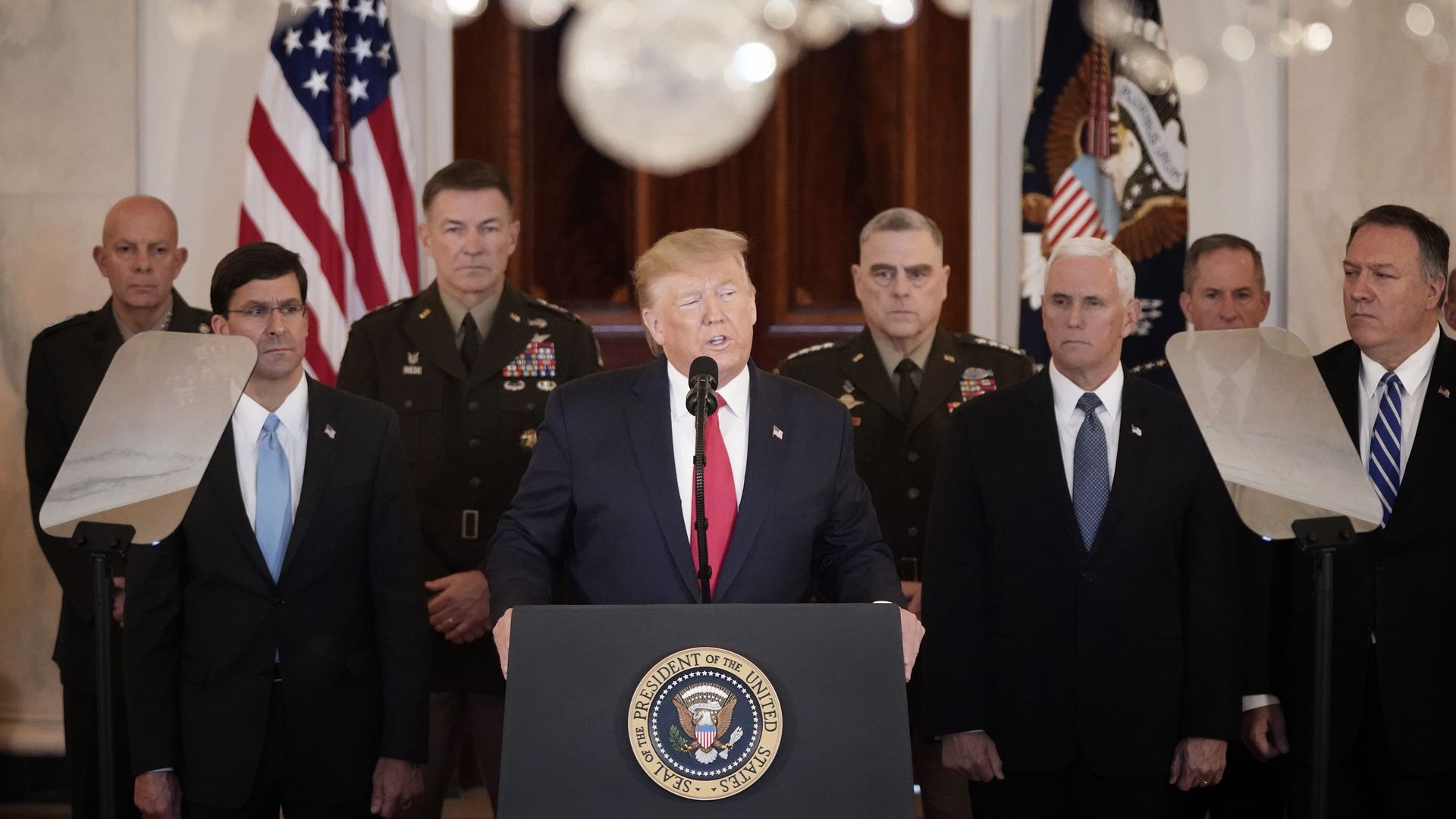Trump puts America's superpower status to the test
Add Axios as your preferred source to
see more of our stories on Google.

Trump's White House address on Iran. Photo: Win McNamee/Getty Images
President Trump has shrunk America's global presence in many ways, but he has also at times placed high-risk bets on its superpower status.
Driving the news: Trump didn't want war with Iran, yet he ordered the killing of Iran's top commander. That requires enormous faith in the shield of American military superiority.
- Engaging China in a trade war requires a belief that the world’s second-largest economy will blink first in a showdown with the largest.
- The “maximum pressure” campaigns — first on North Korea and then on Iran — were testaments to American economic might and to Trump’s confidence that countries and companies would fall in line, even when reluctant to do so.
The results of Trump’s geopolitical muscle-flexing are uneven.
- China has not made anywhere near the model-shifting concessions Trump has demanded.
- North Korea’s nuclear capabilities are more formidable than before “fire and fury.”
- Crippling sanctions on Iran have led not to a tougher deal, but to a series of escalations. Asymmetric retaliation for Soleimani’s death remains likely.
- Venezuela’s Nicolás Maduro is still in power after a year of American insistence that his days were numbered.
Closer to home, Trump’s threats yielded significant tweaks to NAFTA and a pledge from Mexico to hold tens of thousands of U.S.-bound asylum-seekers.
- Holding NATO hostage over defense spending infuriated allies, but budgets have nonetheless increased.
- And Iran’s military retaliation to Trump’s audacious strike in Baghdad came with an early warning and was clearly designed to avoid a showdown with the world’s most powerful military.
The bottom line: Trump's America isn't much liked, and it certainly isn't trusted, as new Pew data shows. But it can't be ignored.
Go deeper:
